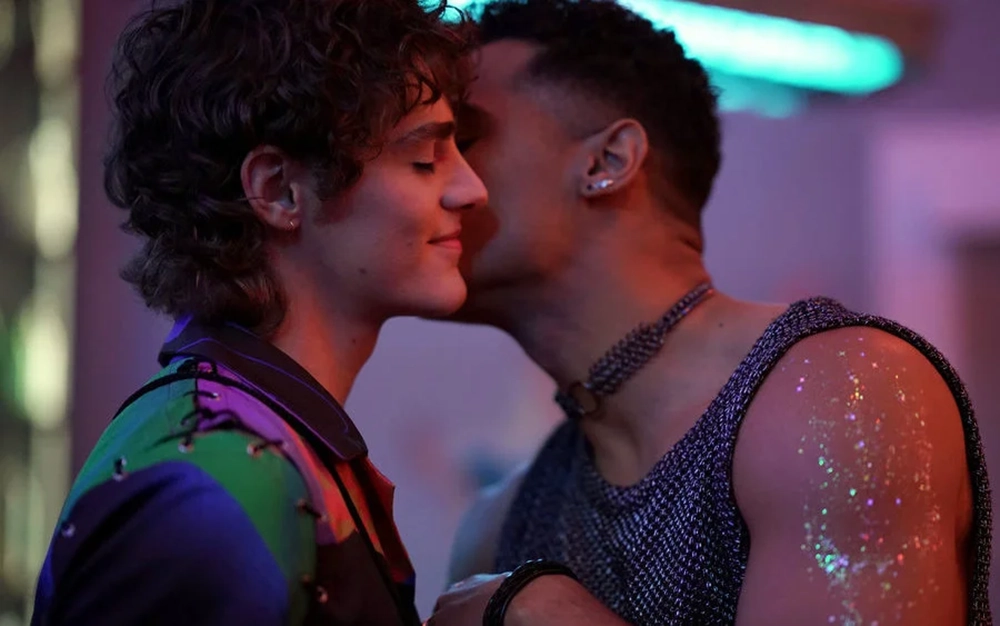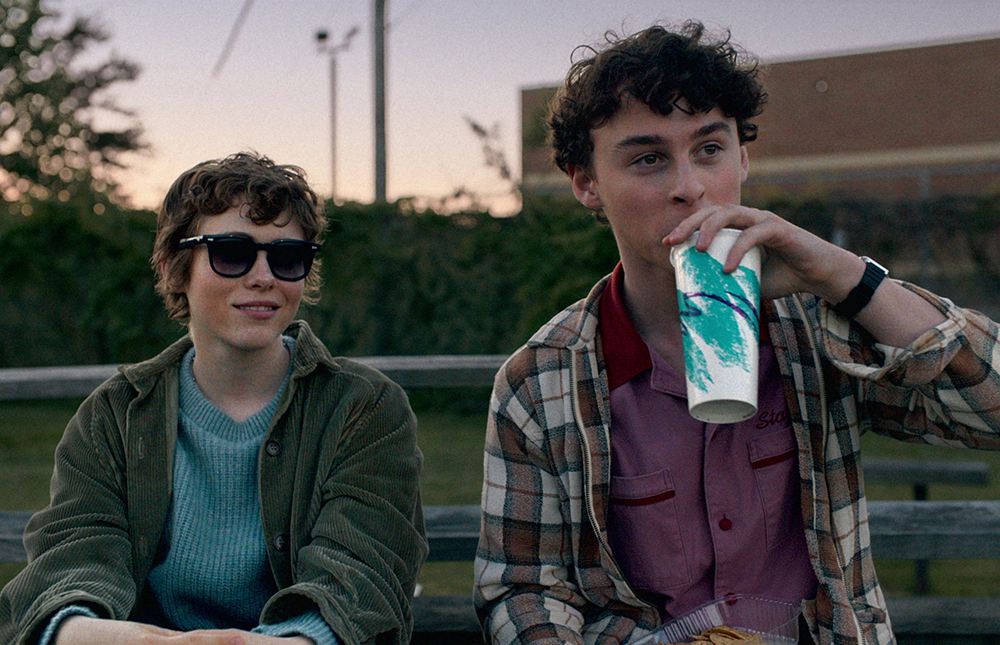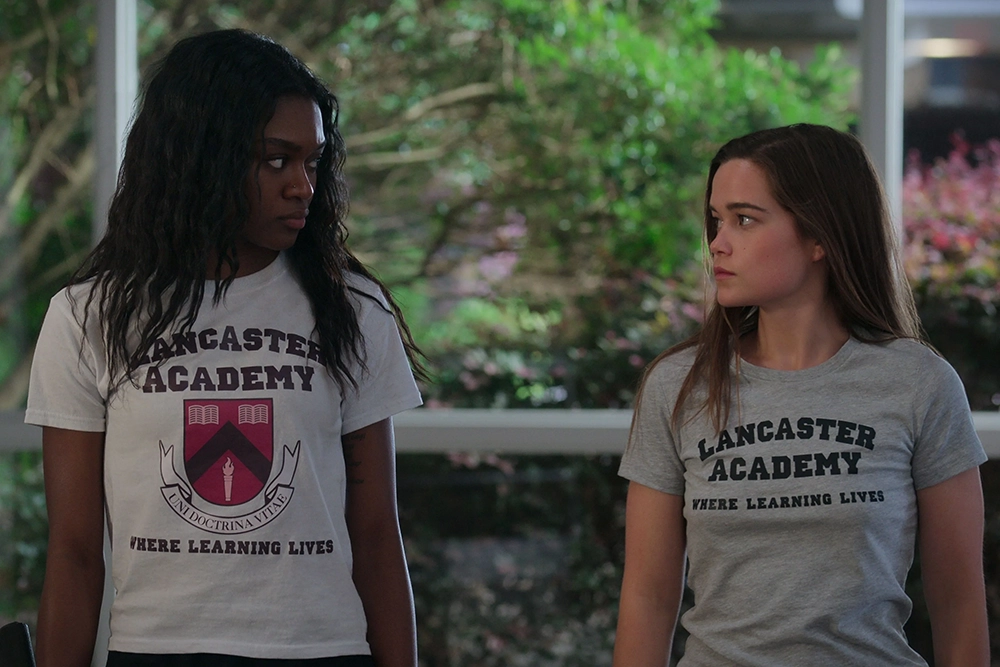Piccoli is joined by guests Raina Deerwater (a researcher and author best known for her work with GLAAD), Monica Monroe (known for spearheading a campaign to save the lesbian vampire drama series, “First Kill,” which was ‘killed off’ after its first season), as well as Ranker staff writer, author, and podcaster Ian Crawford.
Here are a few excerpts from the insightful discussion.
Figuring out the Figures
Deerwater first investigated this trend while working on an annual entertainment report for GLAAD, working alongside a colleague to collect data over 27 years. She kicks off the conversation by expressing her displeasure at the abysmal trends across scripted, cable, broadcast, and streaming platforms. The harsh reality shows that over 30% projects aimed at a queer audience have been cancelled, even despite the excitement over queer representation and characters in contemporary media in recent times. According to her research, the number of cancellations of shows and limited series (some of which were previously approved for renewal by their respective studios) has only grown as of last year; and in many cases, popular queer characters too have been shown the door.
Following this honest but disheartening disclosure by Deerwater, the discussion then shifts to exploring the socio-economic reasons behind the vast number of LGBTQIA+ themed shows being cancelled. The discussion focused on budget cuts, lack of transparency from studios/networks, and the combined negative impact of the same on already uncompensated labour unions. Ian also questions the muddled nature of streaming services in refusing to release their viewing figures to the public, while simultaneously hyping up a certain queer-coded show to its target audience before cancelling it out of the blue.
‘Bury the Gays’

Furthermore, Piccoli draws parallels between this fad of ‘Cancelling the Gays’ with another problematic trope called ‘Bury the Gays,’ which reared its head as early as 2016. She also posed a question to Deerwater about whether queer women are more susceptible to the negative impact of sudden cancellations or the premature, on-screen deaths of memorable characters. Deerwater responds that while there’s no such evidence of divisiveness regarding genders, this fad has definitely led to the unfortunate demise of trans and non binary representation. She cites “Queer as Folk” (a show hailed for its representation of people of colour, and which was cancelled after only one season) as an example of the same.
Deerwater and Piccoli also propose that the two ‘-isms’ (conservatism and capitalism) may have seeped into the industry and could play a role in deciding which show stays or goes.
The Collateral Damage of ‘Cancelling the Gays’
The second half of the discussion centred around the frustration of a hapless queer fanbase who might have grown emotionally attached to cancelled shows, particularly if it was a wholesome series like Netflix’s 2022 release “First Kill” This was a show which was not triggering and didn’t rely heavily on gay trauma, but rather acted as a balm by promoting a message of queer acceptance. Monroe, a die-hard fangirl, also reflects upon the initial impact of the aforementioned series on her personal life and on how its lead character (a lesbian woman of colour) opened a gateway for the sapphic community. Fellow women of color such as herself — who always craved on-screen representation of queer people of colour in the media they grew up on — finally felt included.
Inclusivity is also pertinent for Ian, who hails from a Hispanic background and he shares Monroe’s sentiments. He laments that as a fan of “I am Not Ok With This” (another Netflix series which was a fan favourite among the queer community, but which ended abruptly), he too is not okay with streaming platforms preferring to green-light safer and more mainstream (but far less diverse) options such as “X Files” or “Stranger Things” over niche shows. He feels such moves will not only restrict visibility in the long run, but also could promote a problematic mentality suggesting that POC and queer characters are expendable to studios. Ian also worries that if this trend continues, it might lessen any more chances at queer storytelling and inclusivity in general, and viewers might feel coerced into seeking solace in tokenism instead.
The Role of Streaming Services/Studio Execs in Fixing the Issue

Piccoli brings up another valid concern — of viewers missing out on genuine character growth (for example, a closeted character potentially coming to terms with their sexuality in the near future), as well as feeling robbed of closure if such abrupt cancellations continue.
In closing, Ian suggests that it is time for studios and execs to act as strong allies for their viewers and for queer creatives too. He cites an example from his days as an author of YA fiction, when he struggled to publish his work since major publishing houses feared that ‘queer fiction wouldn’t sell’ (Piccoli later points out that amusingly enough, this particular genre has emerged as a bestseller of late). He ultimately emerged victorious with a book deal, but only after discovering an ally in the form of a cis male literary agent who expressed genuine interest in this genre. Ultimately, it all boils down to accountability and compliance from CEOs and the so-called powerful ‘shotcallers’ in the industry, which could resolve this issue.


